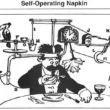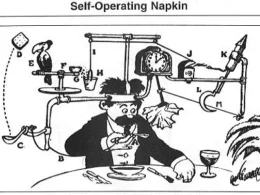Three cheers for the United States Securities and Exchange Commission.
2016-9
Washington D.C., Jan. 14, 2016 —The Securities and Exchange Commission today announced that Goldman, Sachs & Co. has agreed to pay $15 million to settle charges that its securities lending practices violated federal regulations.
According to the SEC’s order instituting a settled administrative proceeding, broker-dealers such as Goldman Sachs are regularly asked by customers to locate stock for short selling. Granting a “locate” represents that a firm has borrowed, arranged to borrow, or reasonably believes it could borrow the security to settle the short sale. The SEC finds that Goldman Sachs violated Regulation SHO by improperly providing locates to customers where it had not performed an adequate review of the securities to be located. Such locates were inaccurately recorded in the firm’s locate log that must reflect the basis upon which Goldman Sachs has given out locates.
“The requirement that firms locate securities before effecting short sales is an important safeguard against illegal short selling,” said Andrew J. Ceresney, Director of the SEC’s Enforcement Division. “Goldman Sachs failed to meet its obligations by allowing customers to engage in short selling without determining whether the securities could reasonably be borrowed at settlement.”
The SEC’s order finds that when SEC examiners questioned the firm’s securities lending practices during an examination in 2013, Goldman Sachs provided incomplete and unclear responses that adversely affected and unnecessarily prolonged the examination.
“SEC exams ensure that market participants are following the rules, so there will be consequences, including in the determination of remedies, when a registrant fails to provide complete and clear responses to examination staff,” said Andrew M. Calamari, Director of the SEC’s New York Regional Office.
According to the SEC’s order, Goldman Sachs employees who were members of the firm’s Securities Lending Demand Team routinely processed customer locate requests by relying on a function of the Goldman Sachs order management system known as “fill from autolocate,” which was accessed via the “F3” key. This function enabled employees to cause the system to grant locate requests based on the amount of reliable start-of-day inventory reported to Goldman Sachs by large financial institutions, even though its automated system had already deemed this inventory to be depleted based on locate requests processed earlier in the day.
The SEC’s order finds that when Goldman Sachs employees used this function to grant locate requests, they relied on their general belief that the automated model was conservative and the granting of additional locates would not result in failures to deliver when the securities became due for settlement. In doing so, the Goldman Sachs employees did not check alternative sources of inventory or perform an adequate review of the securities to be located.
The SEC’s order also finds that Goldman Sachs’s documentation of its compliance with Regulation SHO was inaccurate as it failed to sufficiently differentiate between the locates filled by its automated model and those filled by the Demand Team using the “fill from autolocate” function. In both cases, the locate log simply mentioned the term “autolocate” to refer to the start-of-day inventory utilized by the firm’s automated model as the source of securities underlying the grant of a locate.
The SEC’s order finds that Goldman Sachs violated Rule 203(b)(1) of Regulation SHO and Section 17(a) of the Securities Exchange Act. Without admitting or denying the findings, Goldman Sachs consented to the order and agreed to pay the $15 million penalty. The order censures Goldman Sachs and requires the firm to cease and desist from committing or causing any violations and any future violations of Rule 203(b)(1) of Regulation SHO and Section 17(a) of the Exchange Act relating to short sale locate records.
The SEC’s investigation was conducted by John C. Lehmann, Jason W. Sunshine, and Charles D. Riely of the New York Regional Office with substantial assistance provided by John L. Celio, Katy Chiu, Josephine LaFata, and Jennifer A. Grumbrecht of the National Exam Program. The case has been supervised by Sanjay Wadhwa.








15 million.
No admitting or denying.
HOW MUCH MONEY DID THEY MAKE DOING IT?
HOW MUCH MONEY DID THEY CAUSE THE TARGETED SHORTED COMPANIES TO LOSE IN STOCK VALUE?
WHO GETS THE 15 MILLION?
All hail the sec.
Not wishing to be negative, on what basis is the SEC to be cheered for this announcement? It appears to be the continuing practice of the SEC to take these actions when other market news distracts attention, and to provide as little information as possible so as to disguise just how lightly the perpetrator is being disciplined for the poorly described wrong-doing. I would like to know the answers to questions such as the following:
1. How much did GS collect in revenues (premiums) for the shares that were neither available, nor borrowed, nor delivered to the fraudulent short sellers who never delivered the shares they pretended to sell to unknowing buyers in the market? If that number were known, it would clarify that this fine imposed by the SEC is a very insignificant cost of doing business.
2. Was GS huddling with their hedge funds clients, helping to pick the targets of the naked short selling, and assuring the fake “borrowing” procedures would permit the fraudulent trades?
The list could go on, but why bother? This SEC PR is, to me, more proof of continuing deep capture than a reason for cheering or celebration. Show me the reason(s) for that? GS is already off the hook in its targeting of OSTK, thanks to the deep capture that extends into the judicial system, and they appear to be very comfortable, safe and warm in the arms of the SEC.
The short sellers were right about Overstock. The stock price around $10 and is pure garbage. There is no naked short selling issue to cover up its crappy business. Fool.com just wrote a story that Overstock is headed to Penny Stock City. They really said this. Overstock going to Penny Stock City.
If you are right in saying that there was no naked short selling issue in regards to OSTK, you might want to send a quick note to Merrill Pro, and tell them there is no need to send that $20 million settlement check to the company.
https://finance.yahoo.com/news/overstock-com-accepts-20-million-224558524.html
I agree with the sentiments expressed by “n-tres-ted.” I withhold three cheers for the SEC. The only difference between GS and their “improper securities lending practices,” versus Penson Financial and their “naked shorting” charges, is that GS used the f3 key on their computers to generate counterfeit shares, instead of noting a fictitious locate attempt, as Penson did.
Does this mean OSTK will negotiate a settlement with Goldman Sachs as well seeing that they were just fined 15 million for same.
I was hoping to see a jury trial with them.
Congratulations Patrick and team on your win.
http://news.yahoo.com/bernie-madoff-sleuth-harry-markopolos-warns-3-ponzi-171252485–abc-news-topstories.html?soc_src=mediacontentsharebuttons&soc_trk=ma
So disappointing to come to deepcapture month after month month with rarely an update of any kind.
What happened to “The Miscreants’ Global Bust-Out”?
The last chapter, almost 3 years ago (!), ended with the statement:
“Therefore, we need to examine this “nexus” in greater detail. Indeed, it is matter of some urgency that we identify all of the miscreants in this “nexus” because the “nexus” presently poses what is, without doubt, the single biggest threat to not only the stability of the global financial system, but also pretty much everything else that matters—e.g. our freedom, our democracy, and the future of our kids. This will become more than apparent to readers of the next chapters in this, the Global Bust-Out Series, wherein the other miscreants in the nexus will be identified and more full exposed, while the damage that they have done will be more precisely explicated and quantified. So please stay tuned to DeepCapture.com (motto: “We are the red pill”).”
Can anyone explain why information of such vital urgency has just ceased being released? Is Mark Mitchell still alive? Was the story stopped because it was just wrong? Was it stopped because of legal issues? Did someone get to him? What’s going on??